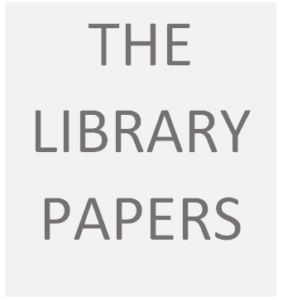The thing I find most striking when reflecting on the readings for this week is that my concept of what constitutes ‘reference materials’ is going to have to change, probably forever. It’s not that I haven’t noticed there are changes going on in school libraries. In my district, many of the libraries both elementary and secondary, have removed most of their encyclopedias and atlases and almanacs etc. They keep two or three choice sets in each category, but the rest of the shelves are bare. Some libraries have even moved the shelves out to make way for informal seating areas instead. The librarians speak of this change with satisfaction and no regret. They say everything that was in the print versions, and much more, is available on line.
I agree with this for the most part, but I hadn’t previously considered that new types of publications will replace the old encyclopedias–recently I’ve noticed more of the more-condensed ready-reference types of book which have links to web pages and sites providing more in-depth information on a given topic. The books of this type that I like best have QR codes instead of or in addition to the URLs. This means that if you have a smartphone, and if you download a QR code reader app, you can access this information from the book itself. You don’t need to write down the code or the URL, you can read it on your phone or tablet. Some of these books have activities at the end of sections to replace what would previously have been more text. So you get a triple-purpose book: ready-reference, curated links on specifically related topics, AND a workbook.

For example, this one: Comparative Religion: Investigate the World through Religious Tradition (2015) by Carla Mooney
I can’t really see any downside to this. Although it does make me wonder if there’s some kind of meta-information conveyed by the sight of the massed knowledge contained in a hard copy set of encyclopedias, which maybe engenders humility and helps to orient researchers to a sense of how much information is available, and how much more one can always know. Whereas when you access individual sites, it is less overwhelming, yes, but also does not give you an idea of how much more there is to know, let alone the reassuring sense that someone knows it, and has organized it and corralled it and presented it here in this large, but not infinitely large, collection.


